- What We Do
- CyberFacility® IDIs & Focus Groups
- MyQual™ DIY Research
- CCam® 360° HD In-Person IDIs & Focus Groups
- Civicom Chatterbox®
Online Community Platform - Glide® Video Curation Tools
- CiviSelect™ Recruiting
- Apply For Our Panel
- Hybrid Quant/Qual Focus Groups
- Online Mock Jury Trials
- Transcriptions
- Translations
- Mobile Research
- Thoughtlight® Mobile Insights App
- Front Row™ Mobile Ethnography
- See Me Navigate™ Mobile Content Usability
- Who We Are
- Resources
- Get In Touch
A COMPREHENSIVE GUIDE TO DATA PRIVACY FOR MARKET RESEARCHERS
A Comprehensive Guide to Data Privacy for Market Researchers
.png?width=720&name=Data%20Privacy%20(2).png)
What are the Different Privacy Laws?
GDPR
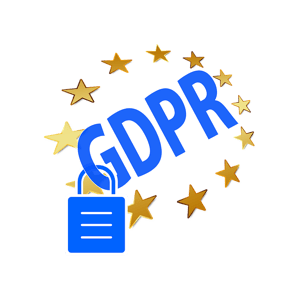
What is considered as Personal Data under GDPR?
This is any piece of information that can be used to identify an individual or group. Here are some examples:
|
|
|
|
|
|
|
|
|
|
Other special types of sensitive personal data are identified under “special categories”. A breach of this data type carries a high risk of abuse of information for an individual or group which is why it requires a higher standard of protection. Examples of these include:
|
|
|
|
|
|
|
-
HIPAA
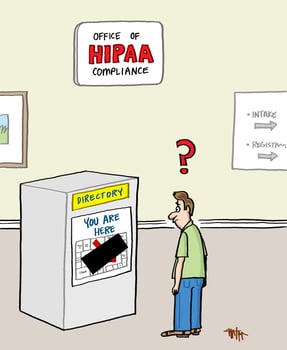
The Health Insurance Portability and Accountability Act (HIPAA) is a federal law that contains security and privacy provisions to safeguard the Protected Health Information (PHI) of patients and research participants. The law dates back to 1996 and was supplemented by the HITECH Act and other amendments to further protect privacy rights and address technological advances.
What falls under the definition of as Protected Health Information (PHI)?
There are 18 identifiers that are considered PHI:
|
|
|
|
|
|
|
|
|
|
|
|
|
|
|
|
|
|
A HIPAA violation is non-compliance with any of the security, privacy, or breach notification rules. Here are some of the most common HIPAA violations:
- Looking at healthcare records without authorization
- Lack of adequate employee training
- Lack of HIPAA-Compliant Business Associate Agreements
- Unauthorized disclosures of PHI
- Failure to safeguard PHI
- Improper disposal of PHI
- Failure to report breaches within the prescribed time-frame
-
COPPA

-
CalOPPA
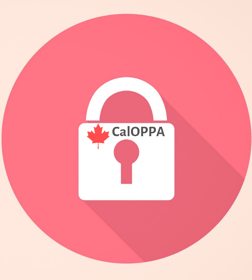
- First and last name
- Home and/or business addresses
- Email addresses
- Home and mobile phone numbers
- Social Security numbers
- Geolocation information
- Credit card and other payment details
-
PIPEDA
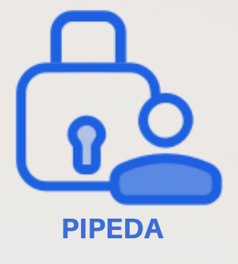
The Personal Information Protection and Electronic Documents Act (PIPEDA) is a federal law that applies to private-sector organizations in Canada. It requires companies and organizations to obtain an individual’s consent before using, collecting and disclosing their personal information.
-
CCPA
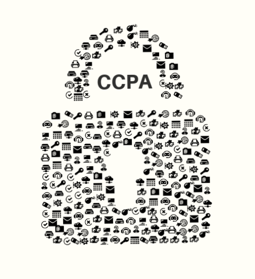
What are the Differences Between GDPR and HIPAA?
The difference between the two lies in their names - GDPR, whose scope is EU citizens, is general, whereas HIPAA, whose scope is Covered Entities and Business Associates in the US., contains the term health information in its name. Since the GDPR contains the word general in its name, it covers more than HIPAA.
Below are other key differences between the two:
1. Consent
Unlike the GDPR where consent must be obtained before disclosing any Personal Data to another party, HIPAA allows covered entities to use of disclose PHI without authorization under these conditions:
- PHI can be disclosed to the patient
- Treatment, Payment, and Healthcare Operations
- Incidental use
- Public interest and benefit activities
- Limited data set
However, both privacy policies have similar applications for marketing and communications. GDPR requires organizations to ask for the individual’s consent before reaching out to them via phone, email, or direct mail. Sending advertisements or any marketing material without consent is a GDPR violation. As for HIPAA, any patient information used in a marketing campaign must be authorized by the patient ahead of time.
2. Right to be forgotten
One of the individual rights in GDPR includes the “right to be forgotten” where data subjects can request for an organization to delete their personal information under certain circumstances (i.e. if the processing is no longer necessary if it is outside the purposes given for consent (transparency) etc.). On the other hand, HIPAA does not enforce this individual right as it is designed to support the portability of Electronic Health Records.
3. Data Breaches
GDPR and HIPAA have different definitions of breach. HIPAA defines breach as “an impermissible use or disclosure under the Privacy Rule that compromises the security or privacy of the protected health information.”
Meanwhile, GDPR defines “personal data breach” in their regulation’s definitions (found in Article 4) as such:
“Personal data breach means a breach of security leading to the accidental
or unlawful destruction, loss, alteration, unauthorized disclosure of,
or access to, personal data transmitted, stored or otherwise processed.”
The biggest difference in data breach between the two lies in the type of data they protect. HIPAA is only concerned with PHI whereas GDPR is concerned with personal data as a whole.
According to the HIPAA Breach Notification Rule, in cases where a data breach has occurred, covered entities must notify the affected individuals, the Secretary, and in some cases, the media.
In cases of data breach that affected less than 500 people, the Office for Civil Rights (OCR) of the Department of Health and Human Services along with the affected individuals must be notified by the final day of reporting each year which is March 1 of the following year.
For breaches that affect more than 500 people, the affected department’s OCR and the individuals involved must be notified within 60 days.
In contrast, as stated in Article 33 of GDPR, data breaches must be reported within 72 hours to the competent supervisory authority of the Member State. The notification must include a description of the data breach’s nature, the data protection officer’s name and contact details, the likely consequences of the personal data breach, and the measures taken to address the personal data breach.
How Do These Privacy Laws Affect The Market Research Industry?
Since market research is now more global than local, many market researchers struggle to comply with various privacy laws.
Email marketing managers and marketing automation specialists are also considerably affected: email marketing managers are now required to ask for consent and make sure that individuals are well-aware of how the organization will use their information. These regulations also restrict email marketers to automatically add these subjects to an email distribution list.
As for marketing automation specialists, they have to ensure that all of the email addresses in their automation system were given with consent. GDPR requires marketing emails to clearly state the company and that is an ad. There should be no misleading subject lines or click bait.
Although GDPR and HIPAA may seem to create limits on market research, they do provide some advantages especially when constructing a targeted campaign. For example, after being granted consent, organizations can gain insight into each individual’s interests by exploiting the need for transparency by asking specific questions that will inform them of the types of information that these individuals want and are interested to receive. These privacy policies also provide transparency which can strengthen trust among market researchers, clients, and respondents.
What are the Costs of Non-Compliance?
1. GDPR
As described in Article 83, violations can lead to two types of fines.
| Violations issued with the first type of fine: | Violations issued with the second type of fine: |
| Insufficient evidence of adequate security | Infringement of Data Subject rights |
| Neglecting to appoint a Data Protection Officer | Transfer of personal data to a recipient in a third country or an international organization |
| Not entering into Data Processor Agreements (under what circumstances, these aren’t always required). | Non-compliance with an order by a supervisory authority |
The first type can incur a fine of up to 2% of the company’s annual turnover, or €10 million, whichever is higher; while the second type can incur heavier fines of up to 4% of the company’s annual turnover, or €20 million, whichever is higher
The potential costs are not only the fines - there are operational impacts of investigations, loss of business and reputation, breach of contract with clients and individual or class actions for infringing Data Subject rights.
2. HIPAA
The penalties and fines for HIPAA non-compliance are based on the severity of each violation. A penalty can range from $100 to $50,000 per violation, and a maximum penalty of $ 1.5 million per year of violations of an identical provision. The OCR of the Department of Health and Human Services takes into account several factors and uses a four-tiered approach to determine the appropriate financial penalty.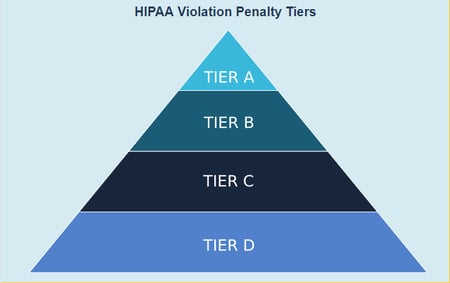
|
|
|
|
3. COPPA
Violating COPPA carries a penalty up to $40,000 per violation and may increase depending on the case specifics. For example, if a company collected the personal information online of five children below 13, it can lead to a penalty of over $200,000.
4. CalOPPA
According to the California Unfair Competition Law (UCL), violations of CalOPPA can lead to a penalty of up to $2,500 per violation. This may not seem much but take note that an organization will receive one violation every time someone visits their website or application if it lacks a conspicuous link or is deemed non-compliant.5. PIPEDA
Organizations that are found violating PIPEDA can be fined up to $100,000 per violation.
6. CCPA
The penalties and fines for CCPA are based on whether the violation is intentional or not. An intentional violation has a penalty of up to $7,500 per record whereas an unintentional violation can lead to fines of up to $2,500 per violation. In addition, it also gives individuals the right to file private actions.How to Maintain Compliance in Market Research
It’s important to be up to date with the latest data privacy laws, market researchers must know what requirements to address to ensure they stay compliant with every privacy law applicable to them or the data they handle.
The most important strategies to meet these requirements include:
- Consent Management
- Data Minimization
- Data Transfer Security
- Physical Security
- Employee Security Awareness and Training Programs
Most if not all data privacy laws state that before collecting any personal information, obtaining the data subject’s consent is a must. When obtaining consent, make sure that it was given voluntarily and can be withdrawn anytime.
Market researchers must also inform data subjects of the following:
- the purpose of the data collection;
- where the personal data will be stored;
- the specific data to be collected;
- the company, organization, data controller’s name, address, and contact information
- whether data will be disclosed to third parties
It is also important to manage do not contact and opt-out lists - CCPA does not require consent to sale of information but does require opt-out button on website homepage.
Minimizing the data needed for a project is good practice, as this can reduce the risk of processing beyond a stated purpose, breach, and unauthorized access or disclosure.
Maintaining controls and conducting regular audits and privacy impact assessments can help in ensuring data security.
Here are some questions to ask to help ease the process:
- Are all personal information accurate, complete, and up-to-date?
- Are there existing security protocols against risks such as loss, data breaches, etc.?
- Are there policies put in place to ensure physical security?
- Are there proper procedures for the use and disclosure of personal data?
- Are employees aware and properly trained to implement these procedures?
Since market researchers generally handle various participant data and information, it’s essential that they understand the importance of data privacy laws. They must learn how to maintain compliance with data privacy laws and what guidelines to take to protect the organization’s reputation and maintain their clients’ trust. Moreover, these requirements will not only benefit clients but it also serves as a safeguard for companies and the data they handle. As mentioned, these privacy policies will provide transparency which strengthens trust among market researchers, clients, and respondents.
Non-compliance can greatly put organizations at risk. Not only does this lead to multiple fines and penalties but it also impacts the company’s reputation which results to a loss in business. These guidelines can prevent this from happening and will give the measures to take to maintain compliance with data privacy laws.
Civicom has safeguards in place in compliance with
GDPR, HIPAA, and associated regulations.
Connect with us and let's get started with your project.

